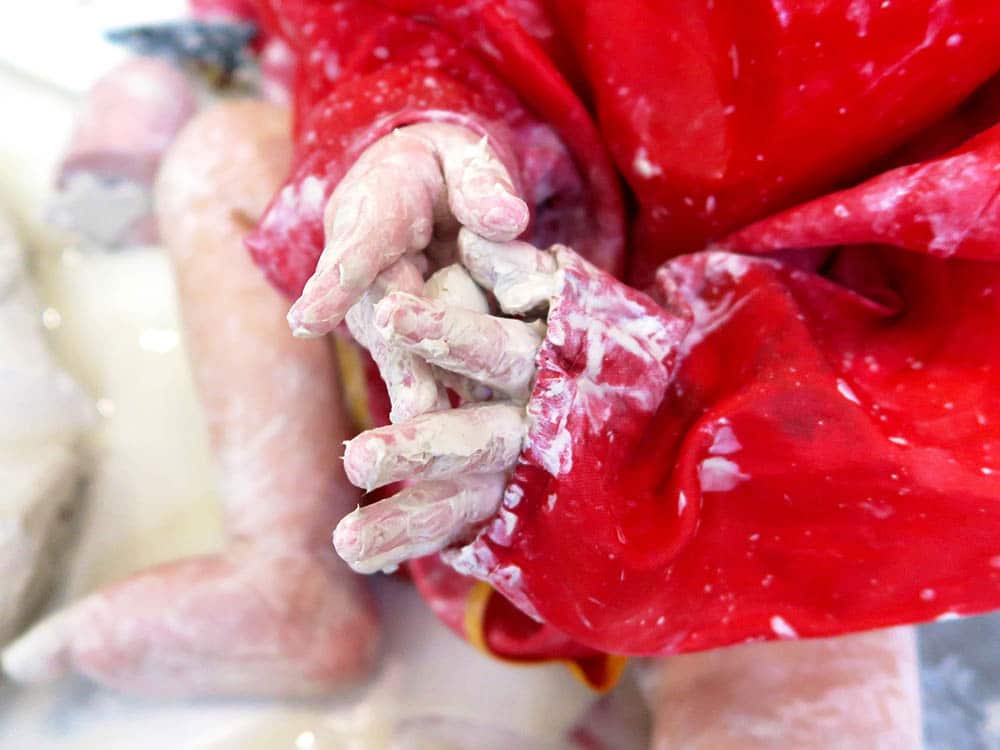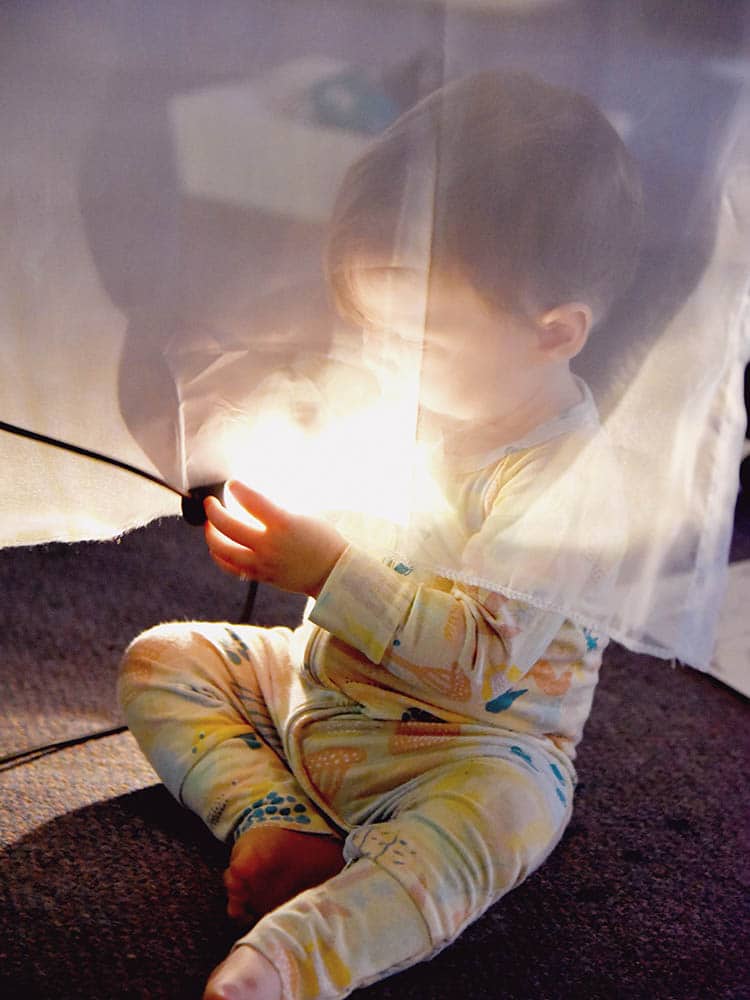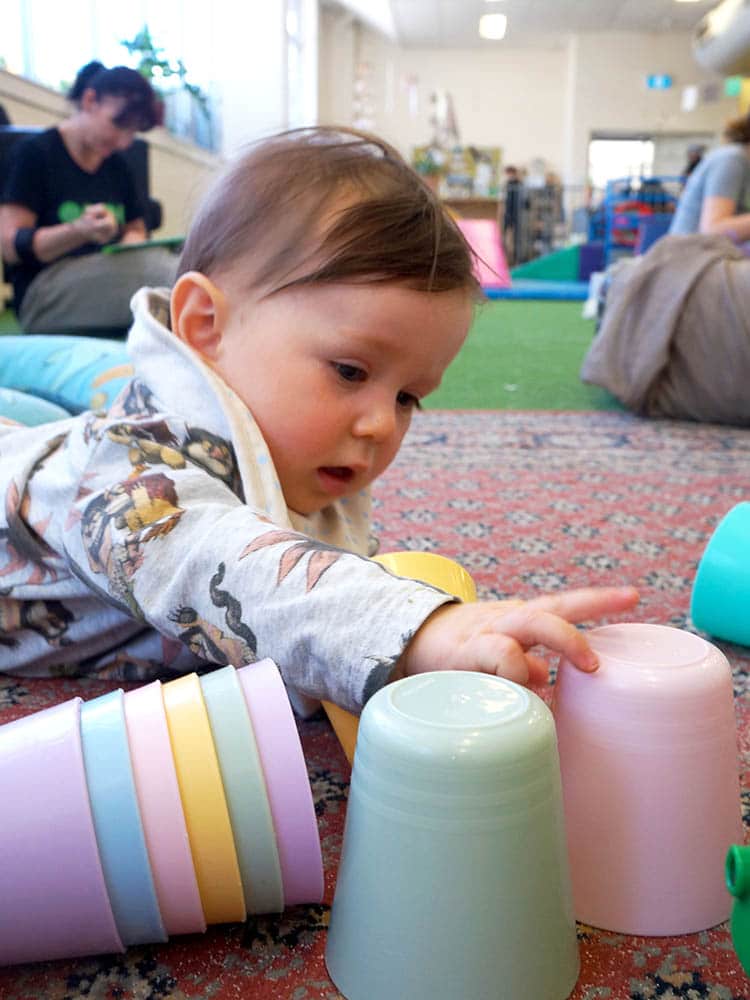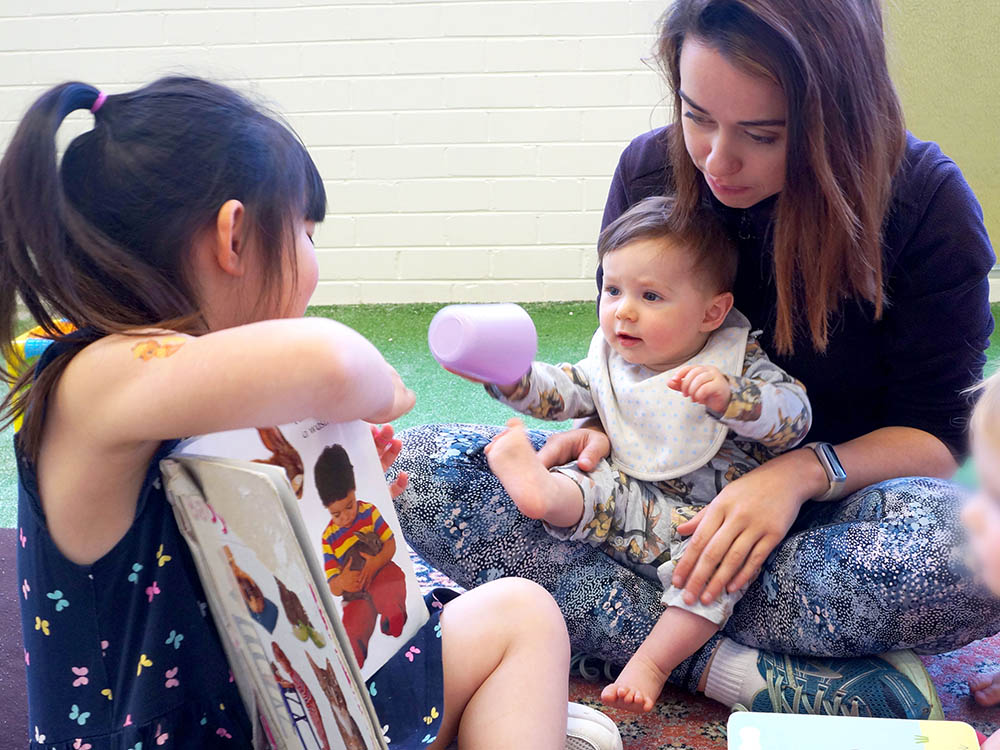Written By Marie Martin
Babies are a fascinating age group to work with. There is more brain development between birth and two years than at any other stage in life. So, even though there may not be much verbal communication, babies are thinking and learning through everything they do.
At SOEL, through observing and documenting babies’ interactions with people, materials, ideas and the environment, educators build on ordinary moments. From this, educators create early learning programs for babies that gives our babies opportunities to grow.
“In the first years of life, children are deeply engaged in the attempt to organise the world that surrounds them. They are engaged in identifying and verifying the relationships of similarity or difference between objects, the impartial relations, and the effects of an action with one object on the placement or identity of another.”
– (Tullia Musatti & Susanna Mayer; Bambini: The Italian Approach to Infant/Toddler Care, 2001).

Baby Learning Programme Opportunities
- Inquirers – actively exploring their surroundings and engaging in new experiences, observing others and building on previous learning experiences
- Knowledgeable – knowing people who are significant to them, recognising and assisting in the gathering and packing away their belongings. Knowing and anticipating the routines of the day (such as mealtimes) and beginning to know the things they like.
- Thinkers – using repetition and imitation to think about resources and their uses. Using different approaches to solving a problem.
- Communicators – expressing themselves by cooing, crying, babbling, smiling, looking, pointing and using non-verbal actions. Responding to their educators and understanding that their actions and reactions cause others to respond to them.
- Principled – while being focused on their own experience of the world, understanding that they share the classroom, garden, and Studio spaces with others. They develop empathy for others in an environment in which educators endorse integrity, honesty, fairness, justice, respect and responsibility.
- Open-Minded – open to all perspectives, exploring different ways of knowing and being.
- Caring – smiling at familiar faces and demonstrating their affection for and with their families, educators and other children.
- Risk-Takers – exploring new ideas and mediums as they develop their gross and fine motor skills, acquire self-help skills and build new relationships.
- Balanced – seeking spaces such as the book corner when feeling quiet, the sandpit or climbing frames when feeling energetic. Additionally, people (which may include a preference for a particular educator) who meet their needs.
- Reflective – repeating actions and testing out theories of what is happening and what works. They revisit and extend their ideas with the support of their educators.




Beautiful, inviting environments accommodate a variety of learning experiences throughout the day, from arrival to departure. Intentional planning enables educators to support children’s concepts purposefully, dispositions and personal, social, communication, thinking and research skills.
We at SOEL share an “image of the child” as someone:
“…who experiences the world, who feels a part of the world right from birth; a child who is full of curiosities, full of desire to live; a child who is full of desire and ability to communicate from the start of his or her life; a child who is fully able to create maps for his or her personal, social, cognitive, affective and symbolic orientation.”
– (Annalia Galardini & Donatella Giovanni; Bambini: The Italian Approach to Infant/toddler Care, 2001).
Learning From Others
Babies also benefit from their interactions with a variety of ‘more knowledgeable others’. Older children visit the babies to share their knowledge and skills, developing trusting relationships and confidence together. The room educators have a robust support system within SOEL that interacts with the babies. They’re supported by ‘floaters’ who work across the centre, Studio Educators, Managers, and Pedagogy and Training Team members. The Chef and receptionist are also familiar friends of the babies.
There is so much happening in our babies’ rooms at SOEL! Through Storypark, families see images of their babies engaged in their learning. Families can read descriptions of some of the significant learning moments and achievements. In Visual Displays, educators present the learning process to both families and the babies.
Babies genuinely are ‘engaging with their community in subtle and delightful ways’.
“Child development is a process of social construction that takes place in the context of close and meaningful relationships with adults and peers”.
– (Annalia Galardini & Donatella Giovanni; Bambini: The Italian Approach to Infant/toddler Care, 2001).


